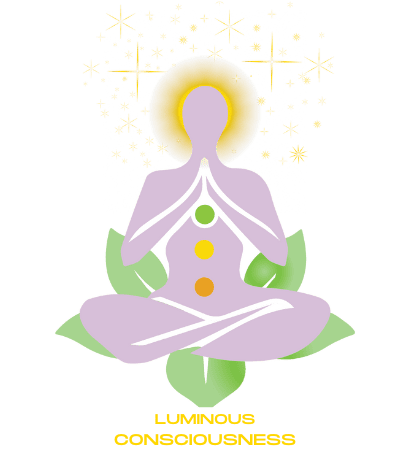Here’s a little transparency: Our website contains affiliate links. This means we may receive a small commission if you click and make a purchase. Don’t worry—there’s no extra cost to you. It’s a simple way you can support our mission to bring you quality content. Learn more at the Affiliate Disclosure page.

Is Authenticity the Ultimate Expression of Positive Emotions?
In today’s world, authenticity has become a popular concept, especially in the age of social media, where filters and curated lives often dominate. But what does authenticity mean, and how does it connect to positive emotions? Beyond being a trending buzzword, authenticity speaks to something deeper—a harmonious state where your actions, emotions, and thoughts align with your true self. This alignment can be transformative, unlocking the highest forms of joy, peace, and fulfillment.
Let’s explore how authenticity ties to positive emotions, why it matters, and how you can cultivate it in your own life.
What Does It Mean to Be Authentic?
At its core, authenticity is about being genuine. It’s living in alignment with your values, beliefs, and true self without pretense or masks. Being authentic doesn’t mean sharing every detail of your life or expressing every thought unfiltered. Instead, it’s about self-awareness and expressing yourself in a way that feels honest and true to who you are.
Authenticity goes beyond surface-level honesty. It’s a deep commitment to self-integrity, even when faced with societal pressures to conform. Staying true to yourself is a courageous act in a world that often rewards imitation.
The Connection Between Authenticity and Positive Emotions
Why does authenticity feel so good? The answer lies in how it aligns with your internal and external worlds. When you live authentically:
- Emotional Relief: Pretending to be someone you’re not is emotionally draining. Authenticity eliminates this stress, leaving you with a sense of freedom and peace.
- Deep Connections: Authenticity fosters trust and genuine relationships. When people see your true self, they are more likely to connect with you meaningfully.
- Increased Joy: Studies show that individuals who live authentically experience greater happiness, lower stress levels, and more fulfilling relationships.
The Science Behind Authenticity and Positive Emotions
Psychological research supports the idea that authenticity is closely tied to well-being. Studies in positive psychology reveal that authenticity contributes to the following:
- Higher Life Satisfaction: Individuals who align their actions with their core values report increased contentment and less emotional turmoil.
- Resilience to Stress: Authentic people tend to experience fewer emotional roadblocks. By embracing their true selves, they navigate challenges with greater ease.
- Improved Mental Health: A lack of authenticity is often linked to anxiety and depression while being genuine fosters emotional stability and self-acceptance.

Why Living Inauthentically Can Be Harmful
Not being true to yourself has its costs. When you suppress your authentic self, you may encounter:
- Emotional Exhaustion: Constantly pretending to be someone else can drain your energy.
- Superficial Relationships: Without authenticity, connections may feel shallow, leaving you unfulfilled.
- Internal Conflict: Hiding one’s true self can lead to disconnection, frustration, and even identity crises.
Consider relationships built on pretense—these often lack the depth and trust needed for genuine connection. By not being authentic, you limit your ability to form bonds based on mutual understanding and respect.
Authenticity in Action: Real-Life Examples
Living authentically can transform lives. Let’s look at a few examples:
- Career Shift for Passion: Corporate professionals who leave a high-paying job to pursue a passion project, like starting a nonprofit, often experience heightened joy and fulfillment. They’re living in alignment with their values.
- Honest Relationships: People who practice authenticity in their relationships report stronger bonds and a deeper sense of trust.
- Creative Pursuits: Artists and creators often cite authenticity as a key to their best work. By expressing their true selves, they find greater satisfaction in their craft.
These stories highlight authenticity’s profound impact on overall well-being and emotional health.
The Misconception About Authenticity
One common myth about authenticity is that it’s an excuse for bluntness or selfishness. However, true authenticity isn’t about saying whatever you want without regard for others. It involves:
- Respectful Expression: Sharing your thoughts and feelings while considering how they impact others.
- Empathy: Balancing honesty with compassion, ensuring your authenticity doesn’t harm relationships.
Authenticity requires a delicate balance—being true to yourself while honoring the feelings and boundaries of those around you.
How to Cultivate Authenticity in Your Life
Living authentically is a journey, not a destination. Here’s how you can nurture it:
Practice Self-Awareness
Understanding yourself is the first step to authenticity. Reflect on questions like:
What are my core values?
What makes me happy or fulfilled?
Where do I feel most at ease being myself?
Self-awareness helps you identify areas where you might be compromising your true self.
Align Your Actions with Your Values
Authenticity thrives when your actions reflect your beliefs. For example:
If family is important to you, prioritize time with loved ones.
If creativity drives you, make space for it in your daily life.
Embrace Vulnerability
Being authentic often requires vulnerability. Sharing your true self can feel risky, but it opens the door to deeper connections and personal growth.
Set Boundaries
Authenticity doesn’t mean saying “yes” to everything. Setting boundaries helps you stay true to yourself while protecting your emotional well-being.
Engage in Mindfulness Practices
Mindfulness can help you stay present and connected to your authentic self. Meditation, journaling, or pausing to reflect can strengthen your self-awareness.

Why Authenticity Feels Like a “Breath of Fresh Air”
Have you ever felt an inexplicable sense of relief when you’re with someone who truly understands you? That’s the power of authenticity. You attract experiences and relationships that resonate with your true self when you’re genuine. It’s like finding a rhythm where everything clicks.
Authenticity allows you to drop the exhausting act of fitting in and instead embrace who you are. This liberation creates a ripple effect, bringing more joy, peace, and fulfillment into your life.
The Role of Authenticity in Building Relationships
Authenticity isn’t just about self-expression; it’s a cornerstone of meaningful relationships. Here’s how it strengthens bonds:
- Fosters Trust: When you’re honest about who you are, others are likelier to trust you.
- Encourages Vulnerability: Authenticity creates a safe space for others to share their true selves.
- Deepens Connection: Genuine interactions lead to stronger emotional ties and mutual respect.
Relationships grounded in authenticity are more likely to withstand challenges because they’re built on honesty and mutual appreciation.

The Emotional Rewards of Living Authentically
The benefits of authenticity go beyond surface-level happiness. They include:
- Inner Peace: Being true to yourself eliminates the inner conflict with pretense.
- Increased Confidence: Authenticity reinforces self-acceptance, boosting your confidence.
- Joyful Living: By living authentically, you experience life more fully, savoring moments of genuine happiness.
Balancing Authenticity and Empathy
While being authentic is vital, it’s equally important to practice empathy. Here’s how to strike the right balance:
- Speak Honestly but Kindly: Share your thoughts respectfully, avoiding unnecessary harm.
- Listen Actively: Authenticity isn’t just about expressing yourself—it’s also about valuing the perspectives of others.
- Adapt Without Compromising Core Values: Flexibility in how you express your authenticity can strengthen relationships without diluting your true self.
Conclusion
Authenticity is more than a trend; it’s a way of life that connects us to our highest selves and the most profound positive emotions. Aligning your actions, thoughts, and feelings with your true self unlocks a life of joy, peace, and fulfillment. Authenticity enhances your emotional well-being and strengthens relationships, allowing for deeper connections and genuine trust.
While the journey to authenticity isn’t always easy, it’s undeniably rewarding. So take a moment to reflect on who you are and embrace the courage to live in alignment with your values. You’ll find that authenticity isn’t just the highest form of positive emotion—it’s the key to a life well-lived.
FAQs
- Can authenticity improve mental health?
Yes, living authentically can reduce stress, increase happiness, and improve overall mental well-being by eliminating the emotional strain of pretending to be someone you’re not.
- Is authenticity the same as honesty?
Not exactly. While honesty is a component of authenticity, the latter also involves aligning your actions, emotions, and values with your true self.
- How can I identify areas where I could be more authentic?
Start by reflecting on situations where you feel discomfort or conflict. These may be signs of compromising your true self to fit in or meet others’ expectations.
- Can be authentic hurt relationships?
Authenticity strengthens relationships when balanced with empathy. However, being overly blunt or disregarding others’ feelings can cause harm.
- How does mindfulness support authenticity?
Mindfulness fosters self-awareness and helps you stay present, making aligning your actions with your true self easier.
Get a VIP Access To Our Blog
Be the first to be notified when new content is released. Rest assured, we prioritize your Data Protection and Privacy and will never spam you.
Expand your consciousness and transform your life.
